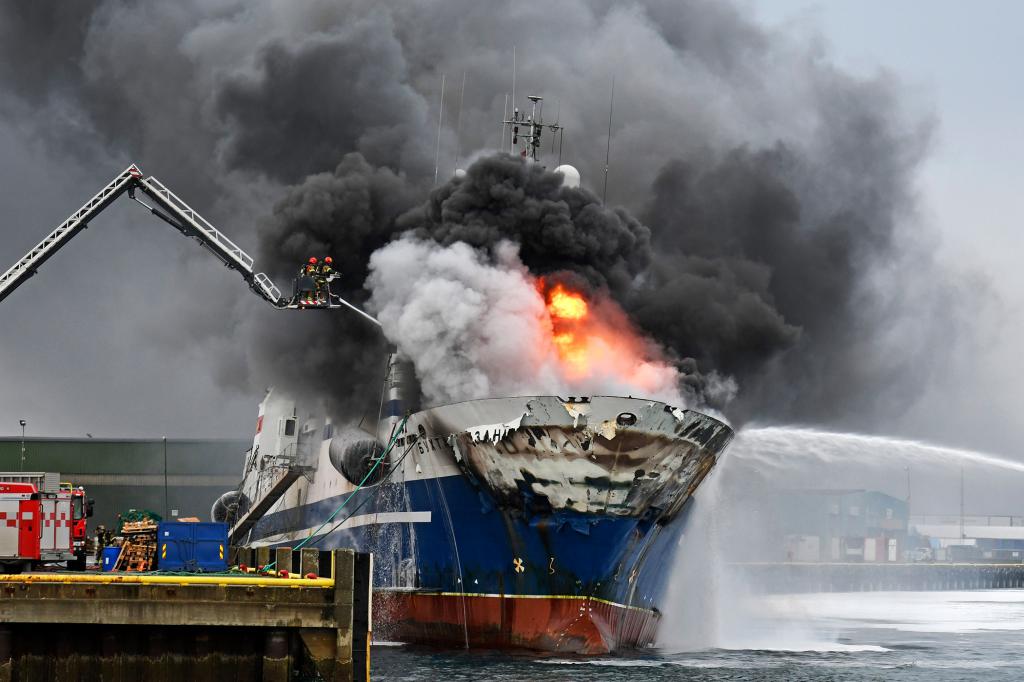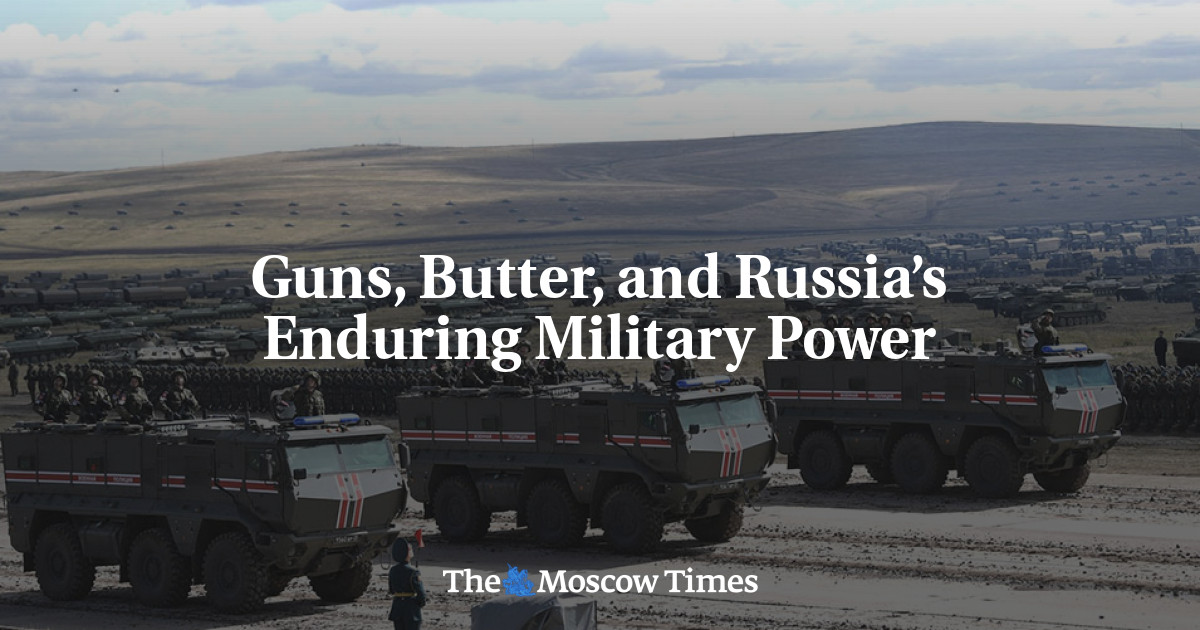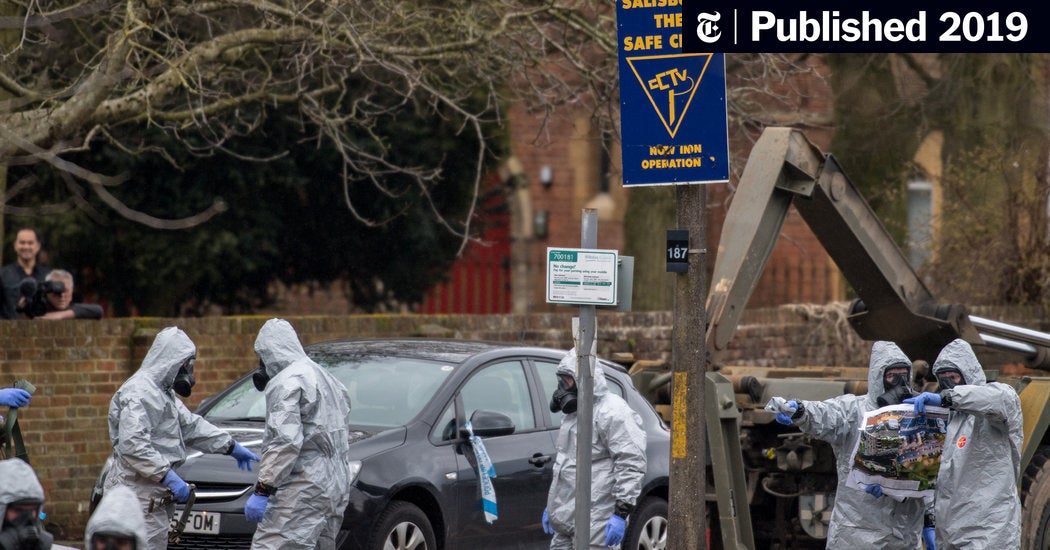StepanRudanskij
Respected Leader
Ilmeisesti Venäjällä tiputettu kaksi BMD:tä laskuvarjoilla miehistön kera. Varjot eivät auenneet.
Orenburgilaisen lehden, joka lainaa RIA:ta, ja militaarilähteitä, mukaan miehistöt eivät olleet laskussa mukana.
Follow along with the video below to see how to install our site as a web app on your home screen.
Note: This feature may not be available in some browsers.
Ilmeisesti Venäjällä tiputettu kaksi BMD:tä laskuvarjoilla miehistön kera. Varjot eivät auenneet.
Orenburgilaisen lehden, joka lainaa RIA:ta, ja militaarilähteitä, mukaan miehistöt eivät olleet laskussa mukana.
скажи что-нибудь еще!
Norjalaisten rynnäkkömursujen testi.
Siinä jo läski lotisee ja heikompaa voi hirvittää...Norjalaisten rynnäkkömursujen testi.
Seuraavassa allossa lähtee suomalaiset lähiövalaat taisteluun...

Lähiövalaat, siiderivalaat kuuluvat ylimmän johdon salaiseen B- ja C -aseiden ryhmään...Lähiö- vai siiderivalas?



Kyllähän tuo vaikutti mitä suurimmassa määrin Venäjän asevoimien tilaamalta advertoriaalilta! Kaikki on mennyt hienosti ja kun Venäjällä yleinen ostovoimakin on niin heikko, asevoimien PPP-korjattu budjetti vaikuttaa suorastaan loistavalta. Advertoriaaliin oli laitettu kaksi lausetta osoittamaan kriittisyyttä ja tuomaan uskottavuutta: "However, the ruling regime seems to have no ability and no desire to conduct major reforms. It has in effect committed to a stable, prolonged stagnation."Tässä artikkeli Venäjän taloustouhuista.
Ihmettelen, kuka on The Moscow Timesin takana, kun se saa välillä varsin suorasukaisesti kirjoittaa Venäjän asioista. Tuossakin artikkelissa tosin on nähtävissä aikamoista "valkopesua"...en todellakaan luota Venäjän virallisiin kasvu- ja budjettitietoihin.

Guns, Butter, and Russia’s Enduring Military Power - The Moscow Times
In response to sanctions and attempts to isolate Russia, the Kremlin has built up a budget with a very comfortable surplus (3.7% of GDP). Seeing debt as a dependency, the Kremlin has driven Russia’s net public debt — that is, external debt plus all kinds of domestic debt — to zero.www.themoscowtimes.com
Tuon artikkelin yhteydessä tosin mainittiin sen olevan alunperin julkaistu Wilson Centerin sivuilla (https://www.wilsoncenter.org/blog-post/guns-butter-and-russias-enduring-power). Ja tässä Wilson viittaa USA:n ex-presidentti Woodrow Wilsonin: Wilson Center on USA:n kongressin rahoittama pulju.Kyllähän tuo vaikutti mitä suurimmassa määrin Venäjän asevoimien tilaamalta advertoriaalilta! Kaikki on mennyt hienosti ja kun Venäjällä yleinen ostovoimakin on niin heikko, asevoimien PPP-korjattu budjetti vaikuttaa suorastaan loistavalta. Advertoriaaliin oli laitettu kaksi lausetta osoittamaan kriittisyyttä ja tuomaan uskottavuutta: "However, the ruling regime seems to have no ability and no desire to conduct major reforms. It has in effect committed to a stable, prolonged stagnation."
Kyllähän tuo vaikutti mitä suurimmassa määrin Venäjän asevoimien tilaamalta advertoriaalilta! ."
Michael Kofman
A Russian man is seeking more than $15,000 in damages from Apple after claiming that the U.S. tech giant drove him to homosexuality, the Govorit Moskva radio station has reported.
The plaintiff, identified as D. Razumilov, alleges that he became “mired in same-sex relationships” this summer after receiving 69 GayCoins on a cryptocurrency payment app he downloaded onto his iPhone in 2017. The unknown sender was said to have included an English-language message that Razumilov interpreted as “don’t judge without trying.”
“I thought, indeed, how can I judge something without trying it? And decided to try same-sex relationships,” Razumilov wrote in a complaint published by Govorit Moskva on Wednesday.
“I can say after the passage of two months that I’m mired in intimacy with a member of my own sex and can’t get out,” his complaint continues. “I have a steady boyfriend and I don’t know how to explain it to my parents. After receiving the aforementioned message, my life has changed for the worse and will never be normal again.”
Razumilov accused Apple of “manipulatively pushing me toward homosexuality,” which caused him “moral suffering and harm to mental health,” in his 1 million ruble ($15,300) complaint.
Moscow’s Presnensky District Court registered Razumilov’s lawsuit last Wednesday, according to the court database, and has scheduled an interview for Oct. 17.

When I served as U.S. ambassador to Russia, the embassy in Moscow held a regular safety exercise called the “duck and cover drill.” The drill is designed to save lives in the event of an attack, and our team practiced it so often that even embassy children could recite the announcement by heart. Through repetition, our reaction to the jarring siren became an ordinary part of the job.
Having now completed my tenure in Moscow, it strikes me that the “duck and cover drill” is a fitting metaphor for the defensive posture we as a country have taken in the U.S.-Russia relationship. We have practiced the same approach toward Russia so long that it has now become reflexive—and detrimental to our long-term interests.
For starters, let’s dispel any lingering illusions about President Vladimir Putin and the layers of sanctions Russia is now under. The U.S., acting alone, won’t succeed in changing his behavior or that of the Russian government. Only the Russian people are capable of this. In fact, demonizing the U.S. and the West with conspiratorial claims of Russophobia-inspired sanctions is good politics for Mr. Putin. His real concerns lie elsewhere. Those concerns are China (yes, China), internal and external threats from radical Islam, and Russia’s own citizens—who are increasingly expressing their frustration through well-organized and large street protests.
It’s true that Mr. Putin runs the country with unrivaled strength. But his time will pass. We need to do less obsessing about Mr. Putin and more thinking about the institutions and generations that will outlast him. Rather than cutting ourselves off from Russia, which is the inescapable effect of all these sanctions, we need to cultivate constructive relationships with those who will shape Russia’s post-Putin period. The U.S. was caught off guard by Mr. Putin’s unexpected rise to power after the collapse of the Soviet Union. We can’t afford to let that happen again.
We need more, not less, dialogue with Russia. But first, we need to allow space for discussion about Russia among ourselves. On both sides of the aisle, a reflexive fear of being seen as Putin apologists has calcified our ability to think creatively about our relations with Russia. As security experts know, fear often has a paralyzing effect. If we allow fear to dictate our approach, we may never find or even consider policies that more effectively advance our national interests, improve the bilateral relationship and make the world safer.
In the U.S., sanctions have become our go-to foreign policy tool to admonish misbehavior. We have placed sanctions on Russia for a host of actions—its bad behavior toward its neighbors, its meddling in our elections, its role in the poisoning of Sergei Skripal and his daughter in England, and so on. It’s easy to initiate sanctions, but it has become politically perilous to discuss removing them. By last count, there are almost 850 Russian individuals and entities that have been designated under various sanctions authorities with little or no analysis measuring their efficacy.
Many of those sanctions may be having the desired effect and should be maintained. But not all. It’s time for an honest discussion about whether sanctions are achieving their aims. Are they raising the cost of doing business for certain Kremlin insiders? Absolutely. But are they also effectively influencing the Kremlin’s policies at home and abroad? Let’s find out.
Blithely implementing sanctions without making sure they fit into a larger strategy of engagement costs us the ability to shape outcomes. Russians have accepted that U.S. sanctions will probably remain in place for the long term, inevitably distorting the market as Russians create alternative supply chains that aren’t always conducive to American interests. My embassy colleagues and I heard the same refrain over and over—that in some cases U.S. sanctions are having the opposite of their intended effect, forcing capital back to Russia, buoying Russian domestic sectors and disadvantaging U.S. businesses seeking to gain a strategic market foothold.
It’s time to stop ducking and covering when it comes to the U.S.-Russian relationship. Targeted sanctions smartly applied serve a purpose, but ultimately it is in our national interest to want more than to see some Russian officials squirm. Our goal should be a Russia that is both a better partner and a more responsible global citizen. The U.S.-Russia relationship will continue to be what it has always been—by turns collaborative, competitive and adversarial. Smart diplomacy thus far has managed to keep us from war, but I worry the current estrangement will limit our options for strategic engagement in the years ahead.
Trust doesn’t come easily in this relationship and must be earned over time. But we have to start somewhere.
Mr. Huntsman served as ambassador to Singapore (1992-93), governor of Utah (2005-09), ambassador to China (2009-11) and ambassador to Russia (2017-19).
 www.eturbonews.com
www.eturbonews.com
